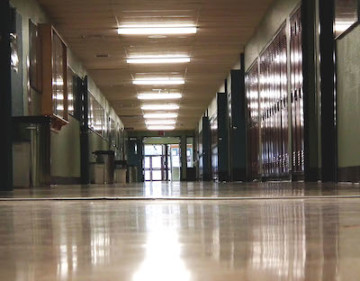Education, News

Back to School: Make the Transition an Easy One
With September comes what is to some is the most wonderful time of year — when parents can give a sigh of relief as children, teens and young adults head back to school. The preparation can be hectic, but it can go much smoother if parents are prepared. To make it

Should Ads Be Allowed In Schools?
Times are tough everywhere in the United States. School boards, unions and governments have been fighting for decades to ensure their budgets are balanced and to prevent more cuts. In the last few years, some schools think they have found a way to shield their schools from drastic cuts through

Student Loan Basics: Private vs. Government Loans
You’ve been accepted to a university, and now it’s time to plan for your undergraduate degree. Maybe you received a scholarship or you’ve been selected for a government or university grant. But when you tally up the costs, it’s still not enough. It’s time to consider taking out a loan

How to Manage Your Money in Preparation for College
You are planning on going on to pursue higher education. You have a goal. You have the drive. You have support but do you have the ability to manage your money while you follow your dream? This is a question that every student should consider before he or she signs

The Pros and Cons of Liberal Arts Degrees
One of the most difficult decisions a college student must make is what degree to pursue. With the rising cost of tuition and increase in student loans, many students feel the pressure to select a major that will make this financial investment pay off after graduation. Once a student has

Is There a Cheating Crisis in U.S. Schools?
According to many educators and researchers, there is a cheating crisis in American schools. While cheating in school has always been an option for desperate students, today’s technology makes it even easier, and maybe even more tempting. Cheating scandals have exploded across the nation in recent years, from teachers changing

Why Do High Schools Students do Poorly in Math and Science?
In the United States, some parents and educators think, “The kids are all right,” while others see the entire education system falling apart. In part, the problem of interpretation rests in the inability of American high school students to score well in two particular areas: math and science. Time and time

The Pros and Cons of a Four-Day School Week
The idea of having a four-day school has been around for several decades, and has been considered at least since the 1930s, according to the National Conference of State Legislatures. But recently, there has been a move towards shorter weeks across the United States. While it was first a mostly Western-state phenomenon, the idea has

The Problem with For-Profit Colleges
One common option for many students looking to further their education is attending a for-profit college. These are institutions that are run by the private sector with the intention of providing an education for students. Yet, these institutions are different than other schools when it comes to finances. For-profit colleges are

Saving For College: What is a 529 Plan?
For parents who hope to help with their child’s college tuition someday, the looming cost of an education can be intimidating. It may seem impossible, but starting early and saving right can go a long way. One strategy for saving up tuition money is the 529 Savings Plan. Here’s a quick

Graduate School: 8 Tips to Help You Get In
Getting into graduate school is a lot of work — finding a program that fits your interests and goals, applications, the GRE exam, letters of intent, coordinating recommendation letters. If you’ve determined that going to graduate school makes sense for your future career, this article will highlight eight ways you can

Farm to School: Sourcing School Meals Locally
Education is more than what happens in the classroom. Students are learning about the world they live in, how to interact with each other, and how to stay healthy. People are becoming more environmentally aware and conscious of what children put in their bodies, particularly as awareness about obesity has

Are Smaller Classes Better for Students?
Though the debate over class size is ongoing, research, in general, indicates that students tend to learn better in smaller environments. Yet, as state budgets are cut, class sizes are only increasing. Why Smaller Class Sizes? Since the 1970s, research has suggested that smaller class sizes lead to higher academic

Teaching the Arts in Schools: Why is it Important?
As school budgets are cut and with the emphasis on math and science, many schools are forced to trim away at their art curriculum. The arts may seem like a fun break from learning and unimportant to student success in our technological world, but the arts play a very important role in the development
